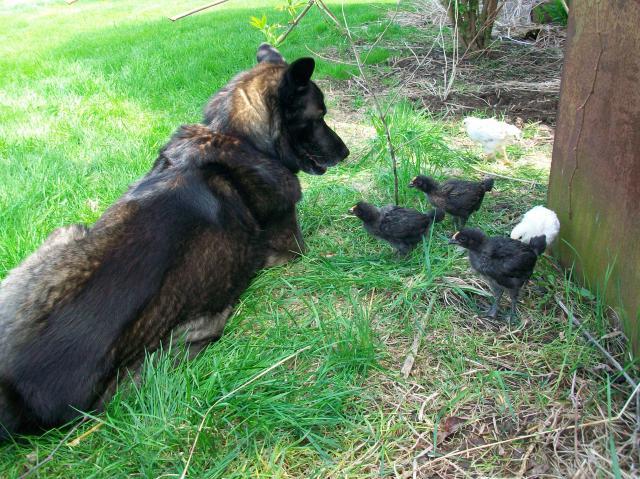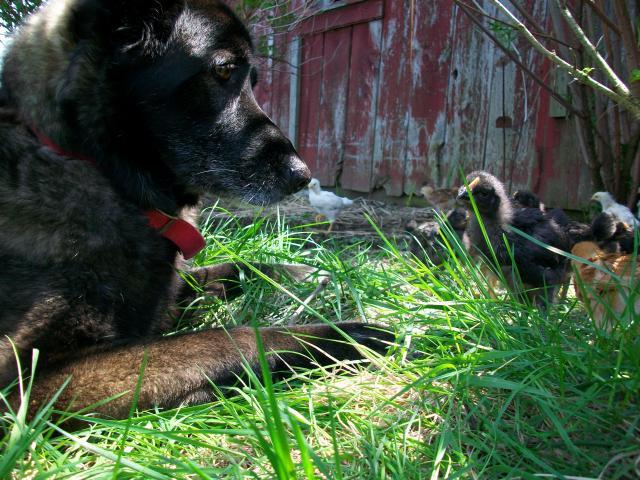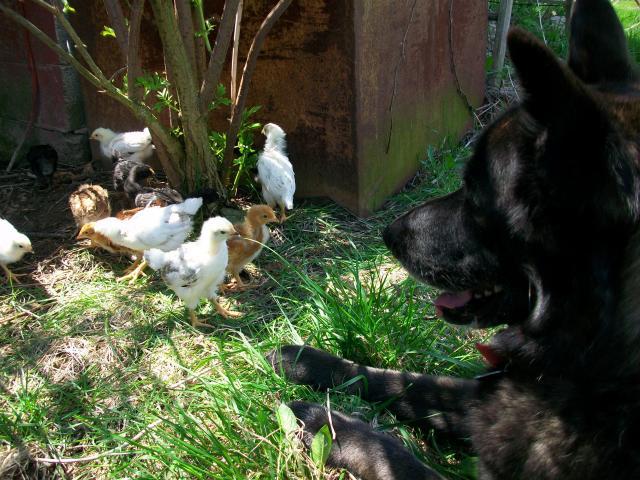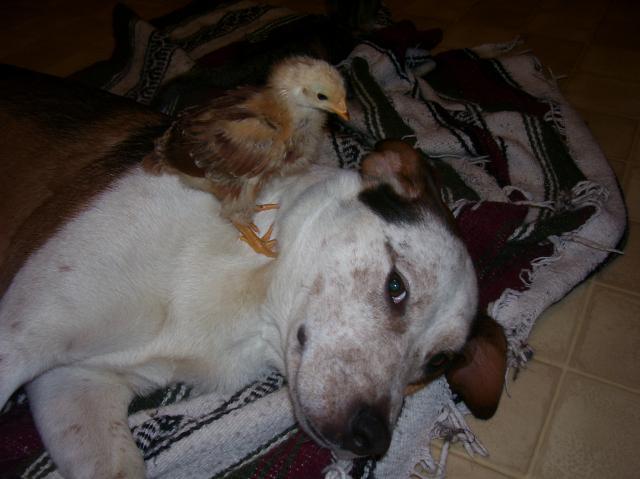I suspect every dog is different and some breeds are better than others around livestock. Heelers and Austrailian shepards are probably great with chicks too.
I have raised both chicks and ducklings with purebred labs in the past and have always used the following training.
After they eat and are calm let the dog sniff each of the babies, smaller the better since you can protect the chick/duckling covering it in your hands. This way the chicken smell and yours meld in their memory. Since they know better than to bite YOUR hand they will sniff and maybe lick. It helps to have a helper so you can keep chick safe IF the dog misbehaves.
When the dog is satisfied, and not actively snifffing, put chickie down and reward doggie with lots of love.
If the dog tries to bite, gets aggressive or agitated use the angry voice, and do whatever that dog needs to have done to punish it quickly, so they associate the two events.
Keep trying and working with the dog, daily until they show disinterest in the yellow fluffy squeakie toy. My dog would let the baby chicks climb all over her. I would never let them together though un-supervised, though I suspect she would be fetching wandering drool covered chickens if I did.
After grown the chickens and duck pose a less enticing morsel, in fact my large Pekin drake would pick on the dog. So I had to protect her from the duck!
Both the dogs I had were hunting stock labs who had never been gun dogs but had some training. They are trained to pick up birds and NOT bite them. I think part of this behaviour is ingrained. Any hunter would be furious to have his birds crushed by a retreiver I think. In fact you train them to not bite and squeeze the dummies they are trained with.
Now my house cats... that will be another question.... Luckily I live where it is very warm and I think the new baby chicks I am planning on getting with grow up in the garage in the box/brooder. I have one cat who is too fat and slow to catch anything. But my little male woud probably love to pounce on an escaped chick.



















